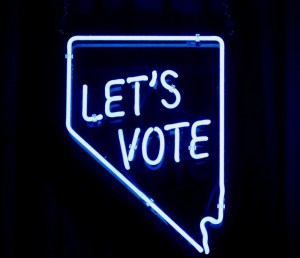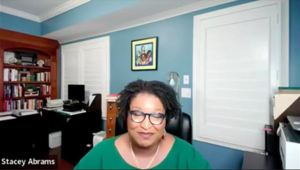By Catherine Pugh,
Special to the AFRO
There are eleven questions on the election ballot Baltimore City during the midterm elections. The AFRO encourages residents to read each one carefully and “know before you go” vote on the issues.
Questions A through G ask you to approve the city borrowing up to 160 million for various projects as follows:
- $14 million for the Affordable Housing program to make it operational
- $38 million for the erection of new school buildings
- $36 million for the community, commercial and industrial economic development programs
- $72 million for the to be used for the development of public infrastructure owned or controlled by Mayor and City Council of Baltimore and Enoch Pratt Library, and public park or recreation land, property, buildings, etc.
The following questions require your vote because they are Charter Amendments:
E. Underground Conduit System-Sale, Transfer, and Franchise Prohibited-
The conduit system is an important asset to the city and produces revenue and so we need to make sure we hold on to it. As ways of communicating continue to grow and broadband continues to expand this asset will become more valuable. Baltimore City owns the 700-mile network of ducts that house wiring for electric and communications services. Both BGE and Comcast are lessors of the system. This proposed action is a follow-up on the legislation that was passed by the council in 2020 and required that the Constitutional Amendment be made available to the voters for a vote.
F. Supplementary Criminal Apprehension and Conviction Fund-
This charter amendment creates a separate fund from any fund that is in place that offers monetary awards for information leading to apprehension, arrest, and conviction of criminal suspects. The funds for this program can be appropriated through the city budget, or donations. No amount has currently been established.
G. Dante Barksdale Career Technology Apprenticeship Fund
This Charter Amendment is named in honor Dante Barksdale, a leader in the Safe Streets Program who was gunned down on the streets of Baltimore on Jan. 17, 2021. Barksdale died from his wounds.
Perhaps the sentimentality in the naming of this fund will evoke understanding of the need to create programs with the school system to keep children from engaging in detrimental behavior. This effort could be as identified in the charter amendment coordinated with the city schools. Since it is broad in its definition, funding it is important. This would also be an opportunity for the union apprenticeship programs to work with the schools.
In setting up the guidelines, the city could look at coordinating with programs like NCIA’s training program that accept 18-year-old young people and train them as auto mechanics, CDL drivers and air conditioning repair persons. They are getting jobs after their 15-week training starting as high as $50,000 and getting a signing bonus. They are located in our city at 301 S. Central Avenue. Make it work! Our young people deserve it.
H. Establishing a Baltimore City Police Department, the head which is the Police Commissioner.
The Baltimore Police Department became a state agency 158 years ago according to documented history in response to the rise of the rise of the Know-Nothing Party which by 1860 had taken complete control of the city and the General Assembly had declared that the mayor and city had proven themselves incapable of maintaining order in the city. Baltimore City would become like every other jurisdiction. John L. Chapman was the 22nd Mayor of Baltimore at the time of this decision.
Most funding of local police departments come from the local authority, state, and federal grants.
The mayor currently appoints the police commissioner, and the police commissioner is responsible for the day-to-day operation of the police department. The police department would be subjected to city ethics laws. You might want to read the history and decide for yourself. An action taken 158 years ago, under a party that no longer exists, should probably change.
- Inspector General – Advisory Board
This charter amendment spreads out the authority of appointing the Inspector General. I would hope that the appointment of such an advisory board would only be advisory so as not to tie the hands of the Inspector General and to allow he or she to do their job. Food for thought. The choice is yours.
J. Accounts Payable- This amendment establishes a department of accounts payable and moves the responsibility of the department under the Comptroller Office. In my limited survey of 10 cities the Accounts Payable Office fell under one of two agencies: the Department of Finance or the Controller’s Office. The important part of this charter amendment is the establishment of an Accounts Payable Office. I think if you were to ask small businesses what their biggest complaint is in doing business with the city…the answer would be…Getting paid on time.
K. Question K Establishes a Two Term Limit for Baltimore City Elected Officials
None of the officials affected by this law will be able to serve more than two terms over a 12-year period. That is what the charter amendment states. I could make an argument easily for both term limits and no term limits.
The first Mayor of Baltimore was elected in 1794 James Calhoun to a 2-year term under the original city charter of 1796-97 and in 1920 the city charter was amended. The mayor serves a term of four years, with there being no number on the times he or she could run.
Nine out of the top ten cities in the United States have term limits for their elected officials. Some allow up to( three)- four-year terms. I believe that even if term limits were implemented a mayor who has served the city well should be allowed to do what Mayor Bloomberg did in New York City when seeking a third term and that is get a given number of signatures to get on the ballot. He won and would have probably won again if he sought a fourth term. In fact, I believe that every city elected official should have the same benefit.
Staggering the elections so that we don’t lose institutional knowledge all at the same time should have been considered in designing this Charter Amendment.
Voters should decide what they think is in the best interest of the city and if term limits are it. Will there be a ballot initiative in the future to limit terms for state legislators?
We have an opportunity during this election to elect some exceptionally good people with vision, plans and direction to lead our state and so voting is important.
To not vote is to let your person or ideas fall by the wayside. Not voting is a vote for the opposition. The charter amendments are important, so please read them carefully! Ask questions and if there are issues you do not understand, reach out for help.
Below are three resources that can assist you:
The League of Women Voters at 6600 York Road #211, 410-377-7738
NAACP, Baltimore Branch 8 West 25th Street, 410-366-3300
Baltimore City Board of Elections at 410-396-5550 , 417 E. Fayette Street, 21202.

The opinions expressed in this article are those of the author. Former Senator Catherine Pugh represented the 40th District from 2007 to 2016, and led Baltimore City as mayor from 2016 to 2019.
Help us Continue to tell OUR Story and join the AFRO family as a member – subscribers are now members! Join here!
The post Commentary: Ballot Questions: know before you go appeared first on AFRO American Newspapers .











